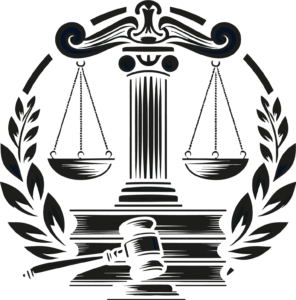- uprightlawassociates.com
- Intellectual Property Law
- May 15, 2024

A Guide to Intellectual Property Laws in Pakistan
In today’s knowledge-driven economy, intellectual property (IP) plays a pivotal role. It protects the creations of the mind, from inventions and designs to literary and artistic works. For businesses and individuals in Pakistan, understanding intellectual property laws is crucial to safeguarding their creativity and reaping the rewards of their innovation. This blog delves into the intricacies of IP law in Pakistan, empowering you to protect your ideas and navigate the legal landscape effectively.
The Pillars of Intellectual Property in Pakistan
Pakistan’s IP framework is anchored in a robust legal system that recognizes and protects various forms of intellectual property. These key areas include:
Copyrights:
Copyrights safeguard original literary, artistic, and musical works, including books, music, software, films, and architectural designs. The Copyright Ordinance, 1962, grants creators exclusive rights to reproduce, distribute, adapt, and perform their works for a defined period.Patents:
Patents offer exclusive rights for inventions, new processes, improvements, and methods of production for a limited time. The Patents Ordinance, 2000, provides inventors with a legal monopoly to exploit their inventions commercially.Trademarks:
Trademarks are distinctive signs or symbols used to identify and distinguish the goods or services of one producer from others. The Trademark Ordinance, 2001, protects trademarks, ensuring fair competition and preventing consumer confusion.Industrial Designs:
Industrial designs protect the visual appearance of a product, such as its shape, configuration, or pattern. The Registered Designs Ordinance, 2000, safeguards the unique aesthetics of products, encouraging innovation in product design.
Benefits of IP Protection in Pakistan
Obtaining IP rights in Pakistan offers several advantages:
Market Exclusivity:
IP protection grants creators and inventors a temporary monopoly over their creations, allowing them to control how their work is used and benefit financially from its exploitation.Encourages Innovation:
A robust IP framework incentivizes research and development by providing legal safeguards for new ideas and inventions.Fosters Business Growth:
Strong IP protection attracts foreign investment and fosters a healthy business environment where innovation is valued.Combats Piracy and Counterfeiting:
IP laws help combat piracy and counterfeiting, protecting consumers from low-quality imitations and safeguarding legitimate businesses.
The Process of Obtaining IP Protection in Pakistan
The process for obtaining IP protection varies depending on the type of intellectual property. Here’s a general overview:
Copyrights:
Copyright protection generally arises automatically upon creation of the original work. However, registration with the Pakistan Copyright Office offers additional benefits, such as facilitating enforcement actions.Patents:
Patents require filing an application with the Pakistan Intellectual Property Office (IPO) that details the invention’s novelty, inventive step, and industrial applicability. The IPO reviews the application and grants patents if all criteria are met.Trademarks:
Trademarks are registered with the IPO upon submitting an application that includes the mark, a description of the goods or services it identifies, and supporting documents.Industrial Designs:
Similar to trademarks, industrial designs are registered with the IPO after filing an application with the necessary details and visuals depicting the design.
Essential Considerations for IP Protection in Pakistan
Seek Professional Guidance:
Navigating IP law can be complex. Consulting with an experienced IP attorney can ensure you meet all legal requirements and maximize your chances of successful registration.Maintain Accurate Records:
Maintaining meticulous records of your creative process, invention development, and trademark usage is crucial for enforcing your IP rights in case of infringement.Enforcement:
If your IP rights are infringed, you can take legal action to seek compensation and prevent further violations. This may involve initiating civil lawsuits or pursuing criminal charges in certain cases.
Conclusion
Intellectual property law plays a vital role in fostering creativity and innovation in Pakistan. By understanding the different types of IP protection available and the processes involved, individuals and businesses can safeguard their ideas, inventions, and creative works. By leveraging IP laws strategically, you can gain a competitive edge in the marketplace, promote innovation, and ensure that your intellectual property fuels your success.
